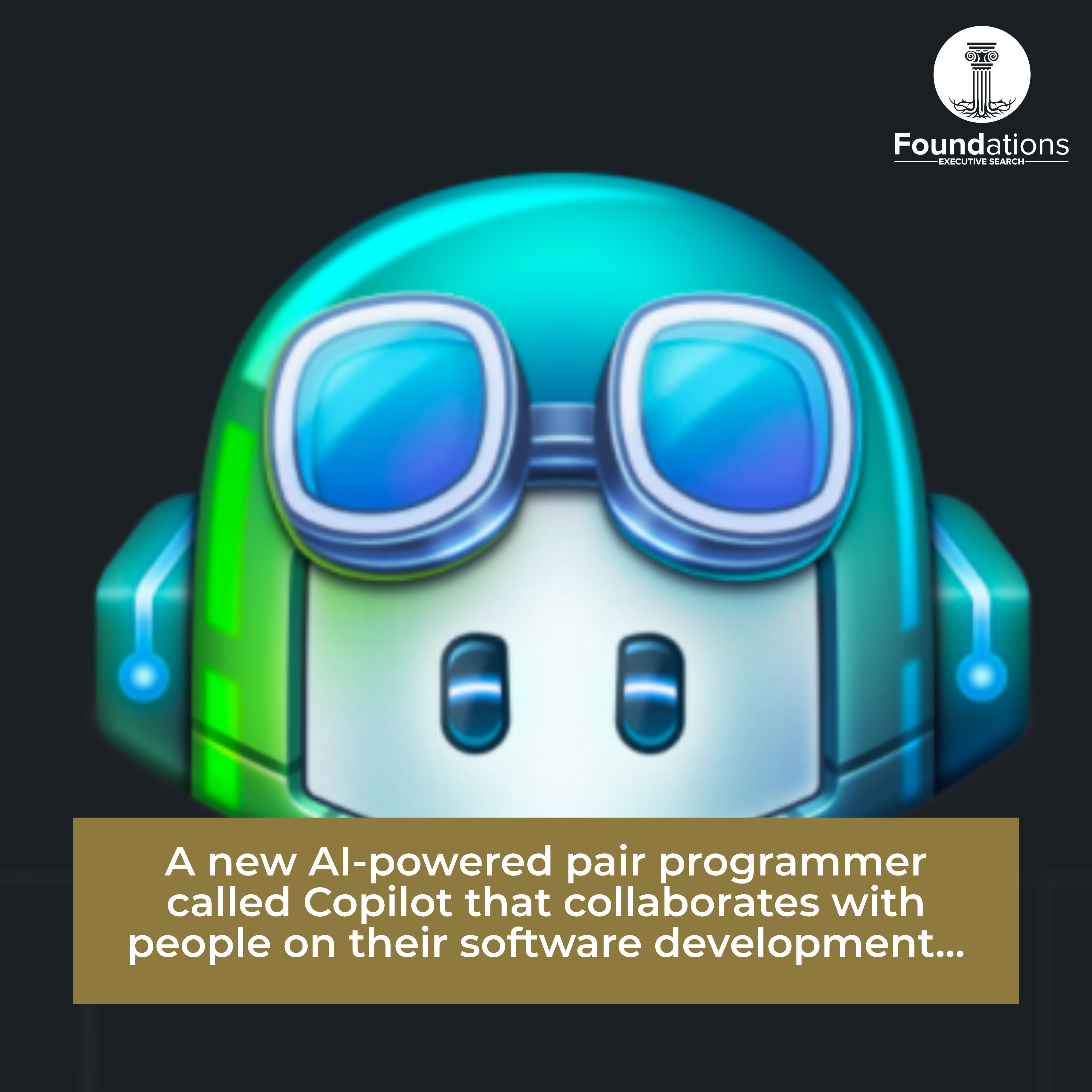Contact Us
Foundations Executive Search,
86-90 Paul St,
London, EC2A 4NE
+44 (0) 208 167 37 37
DEI Policy
Sustainability Policy
Privacy & GDPR

GitHub has just launched a new AI-powered pair programmer called Copilot that collaborates with people on their software development projects, suggesting lines or entire functions as the coder types.
Pair programming, for the uninitiated, is a common agile software development technique where two (usually human) programmers work in tandem at a single screen, taking turns to write code and review the output of their partner.
Copilot uses contextual cues to suggest new code, with users able to flip through alternatives if they don’t like Copilot’s initial suggestion, or manually edit it.
Built with machine learning, Copilot is able to learn over time, so that the more code, docstrings, comments, or function names a developer writes, the smarter and more intuitive Copilot will become, working in a similar fashion to Gmail’s Smart Compose – which is a massive time saver for many of us.
Although the concept of an AI-powered autocomplete for code may not be new, with companies like Codota and Tabnine (now merged to form Tabnine) and Github’s Parent company Microsoft recently announcing a new Power Apps (software for creating low-code business apps), but this is a big set forward for AI integration into the coding and developer space. GitHub’s Copilot leans heavily on a collaboration with OpenAI (the AI research company that Microsoft invested $1 billion in last year) and uses a new AI system called OpenAI Codex, which is touted as “significantly more capable at code generation than the GPT-3 used by Microsoft and others.
Trained on datasets that incorporate public source code and natural language means that Copilot’s OpenAI Codex is able to interpret comments and logic when assembling the code and should be more knowledgeable about how developers write code and able to make more accurate and intricate suggestions.
While GitHub’s new AI pair programmer could help experienced developers save some time, I think it may prove particularly fruitful for those starting out and coders new to a specific language or framework, as GitHub Copilot will save them from having to search elsewhere on the web for answers.
The technical preview is available today as an extension for Microsoft’s cross-platform code editor Visual Studio Code, working locally or in the cloud. While Copilot is designed to work with a broad gamut of languages and frameworks, at launch it’s particularly adept at JavaScript, Python, Ruby, TypeScript, and Go.
It is worth noting that GitHub Copilot is not designed to write code on behalf of the developer; it’s more about helping developers by understanding their intent.
Go check it out here! https://copilot.github.com